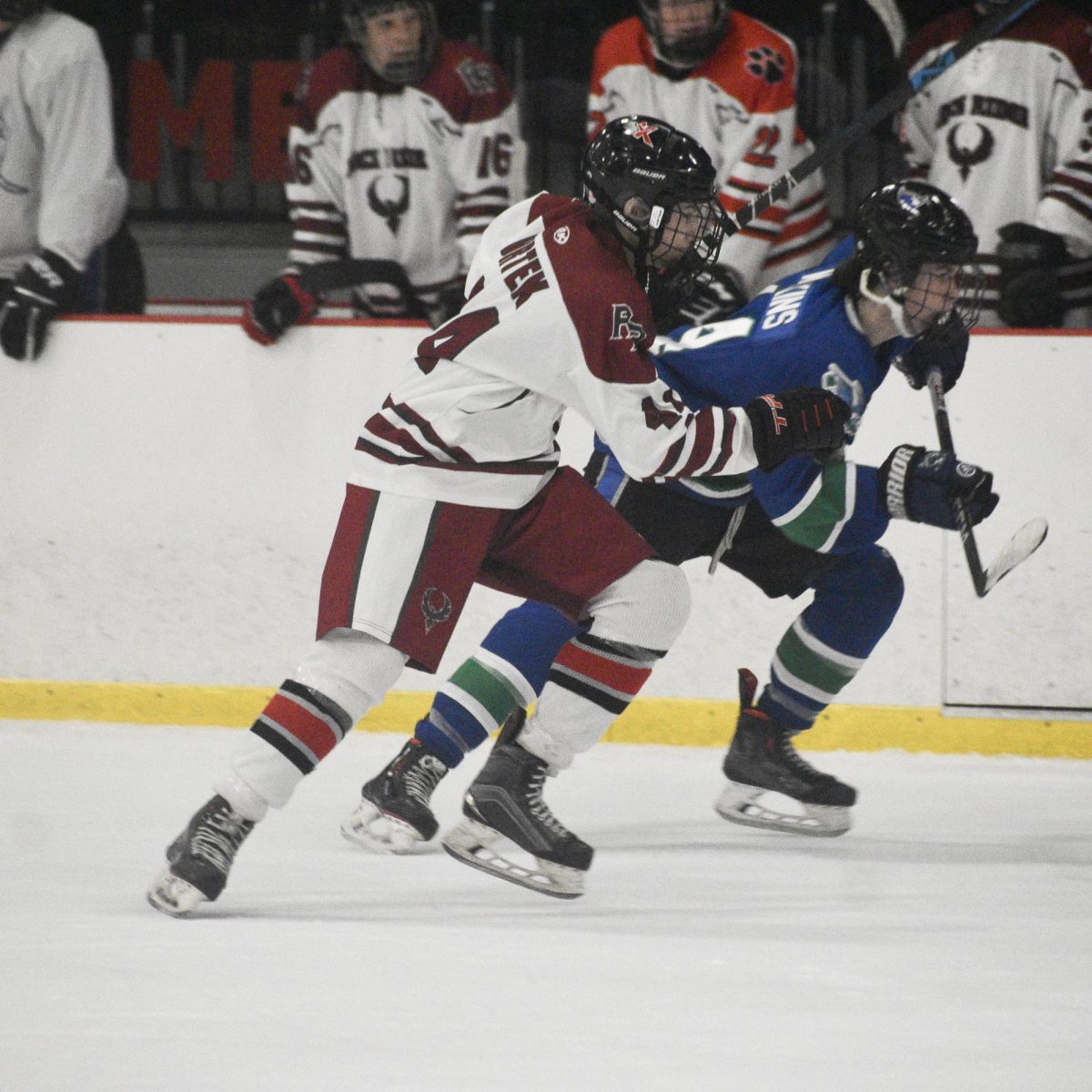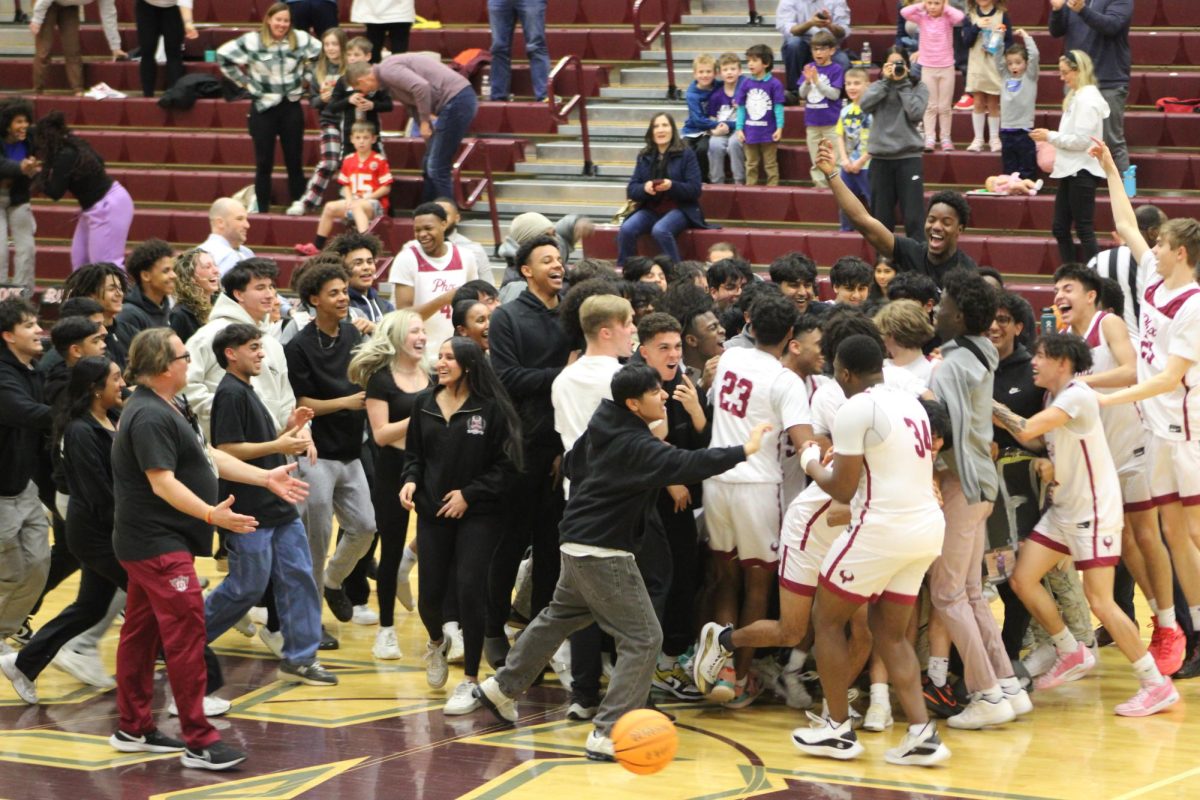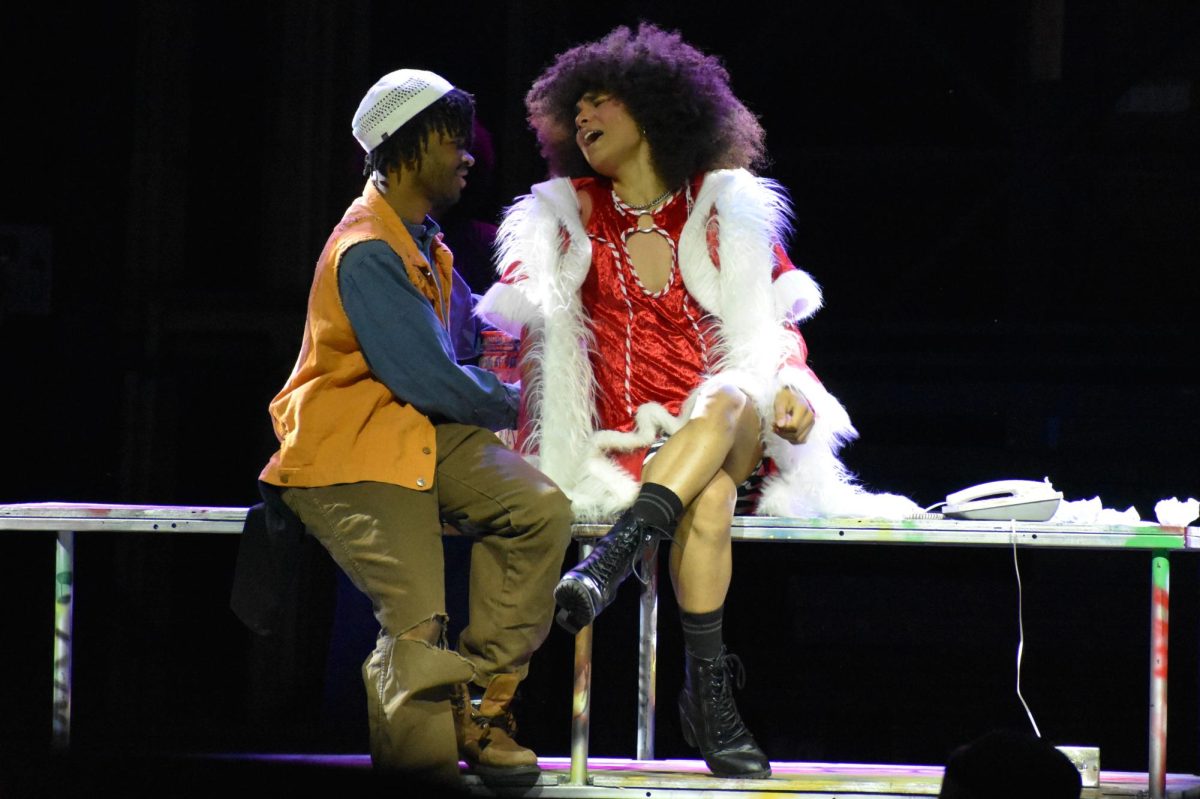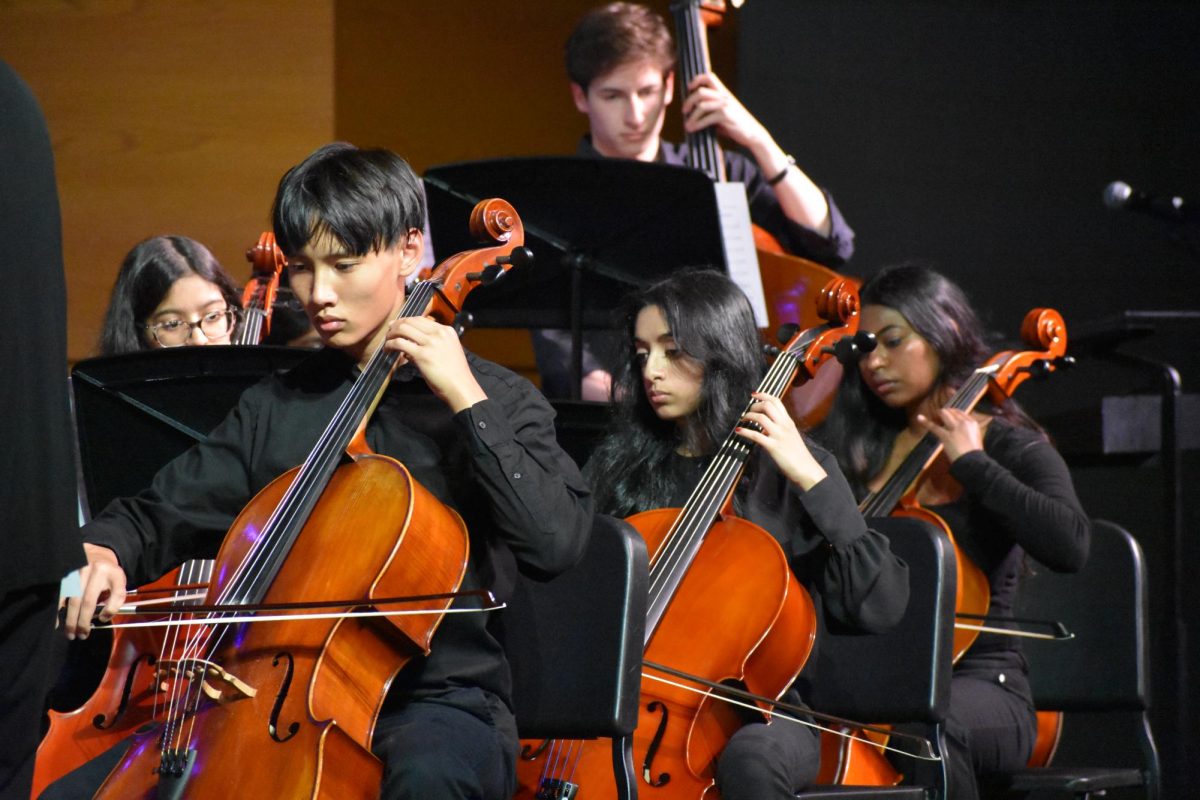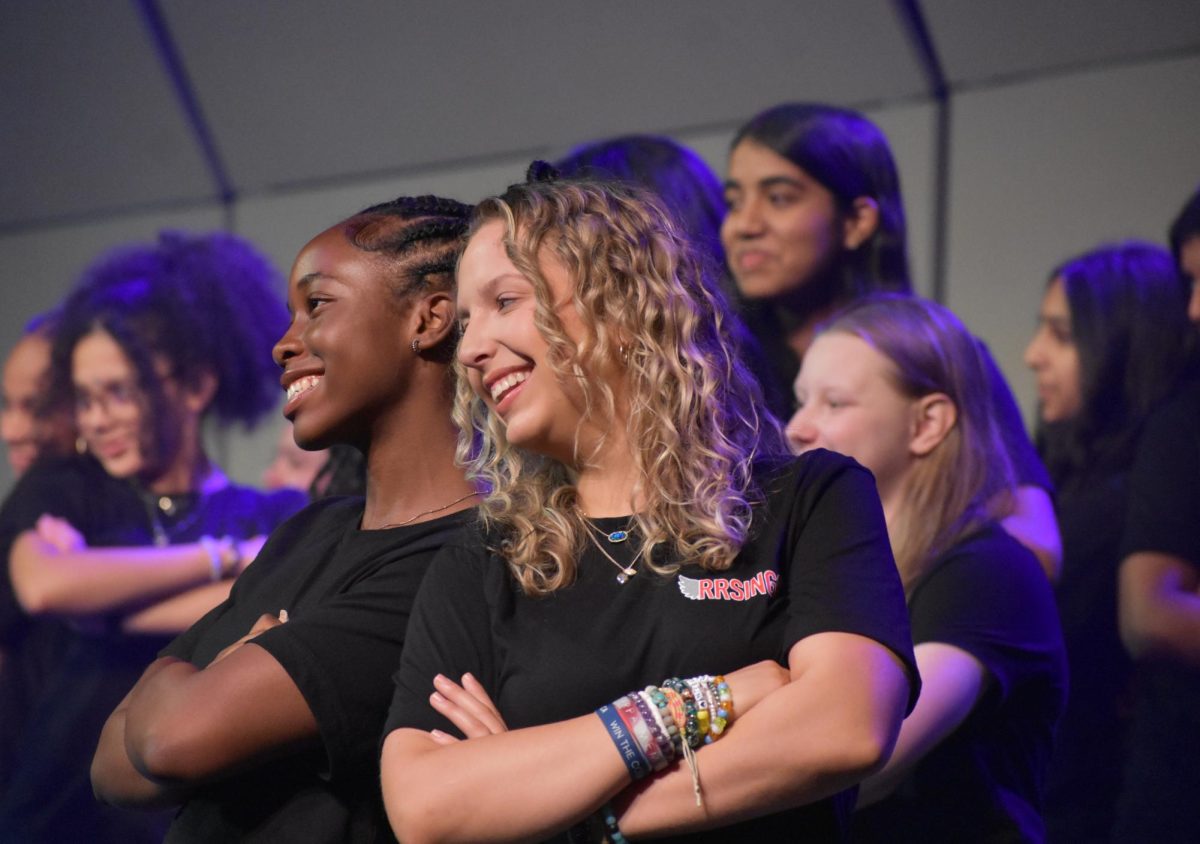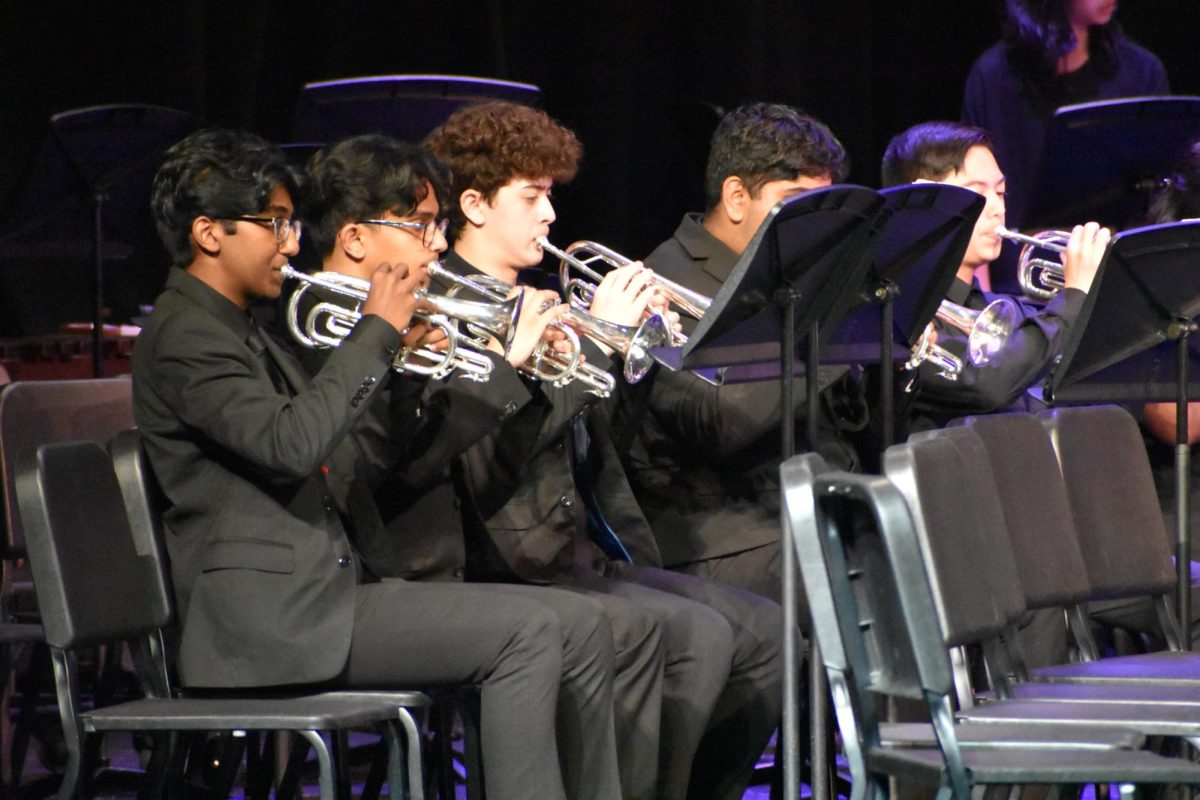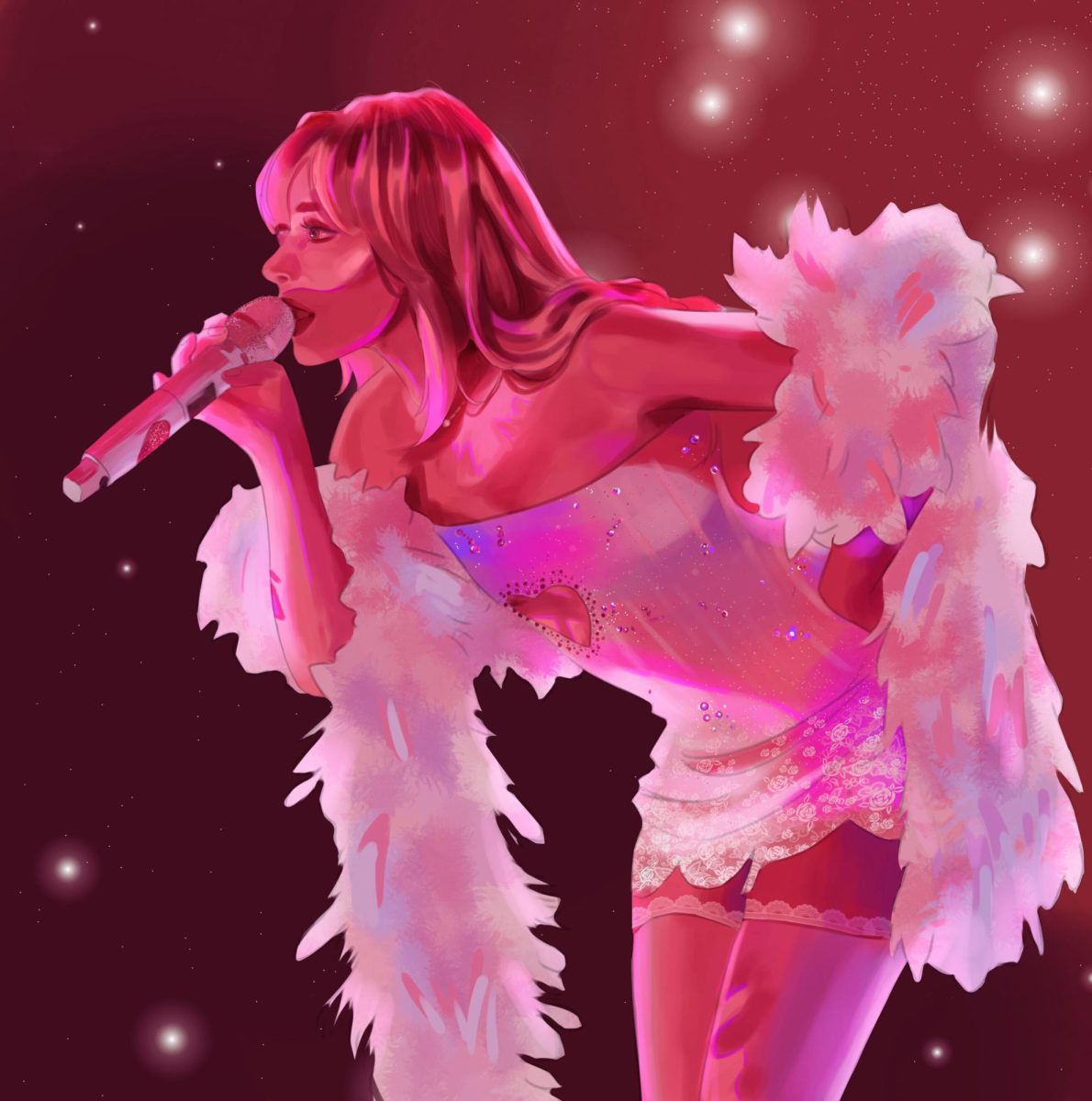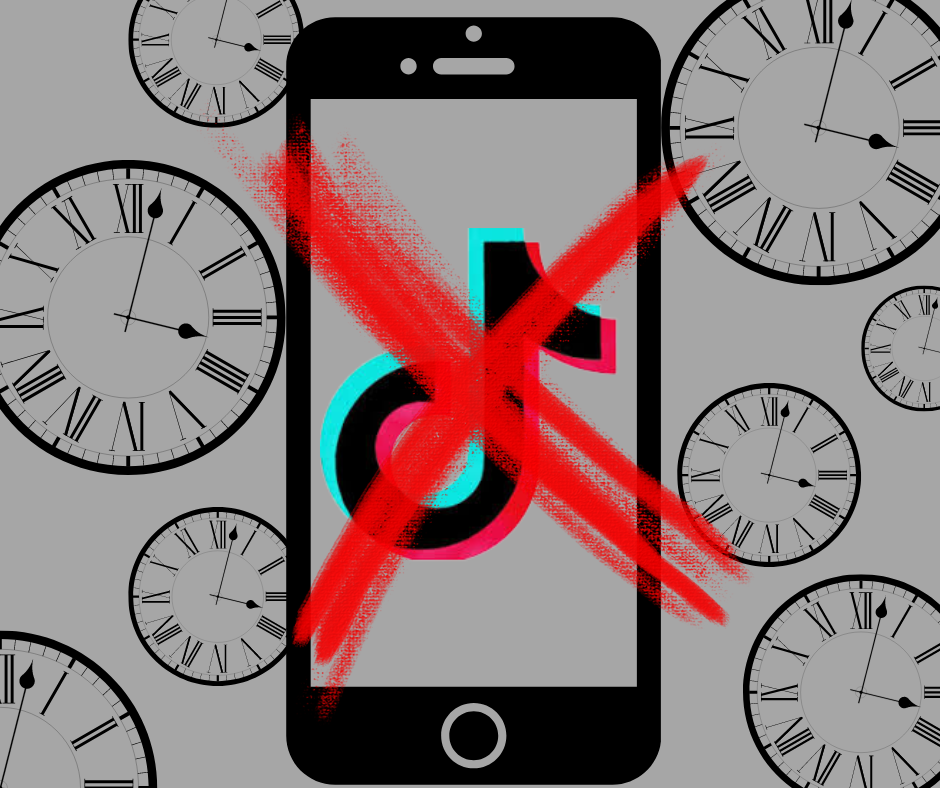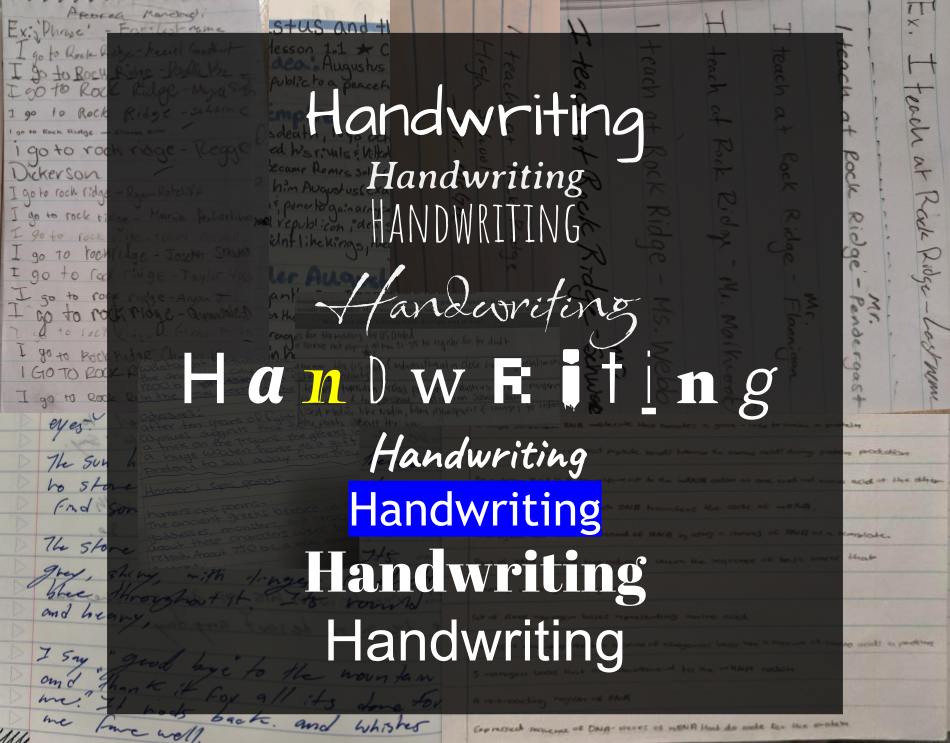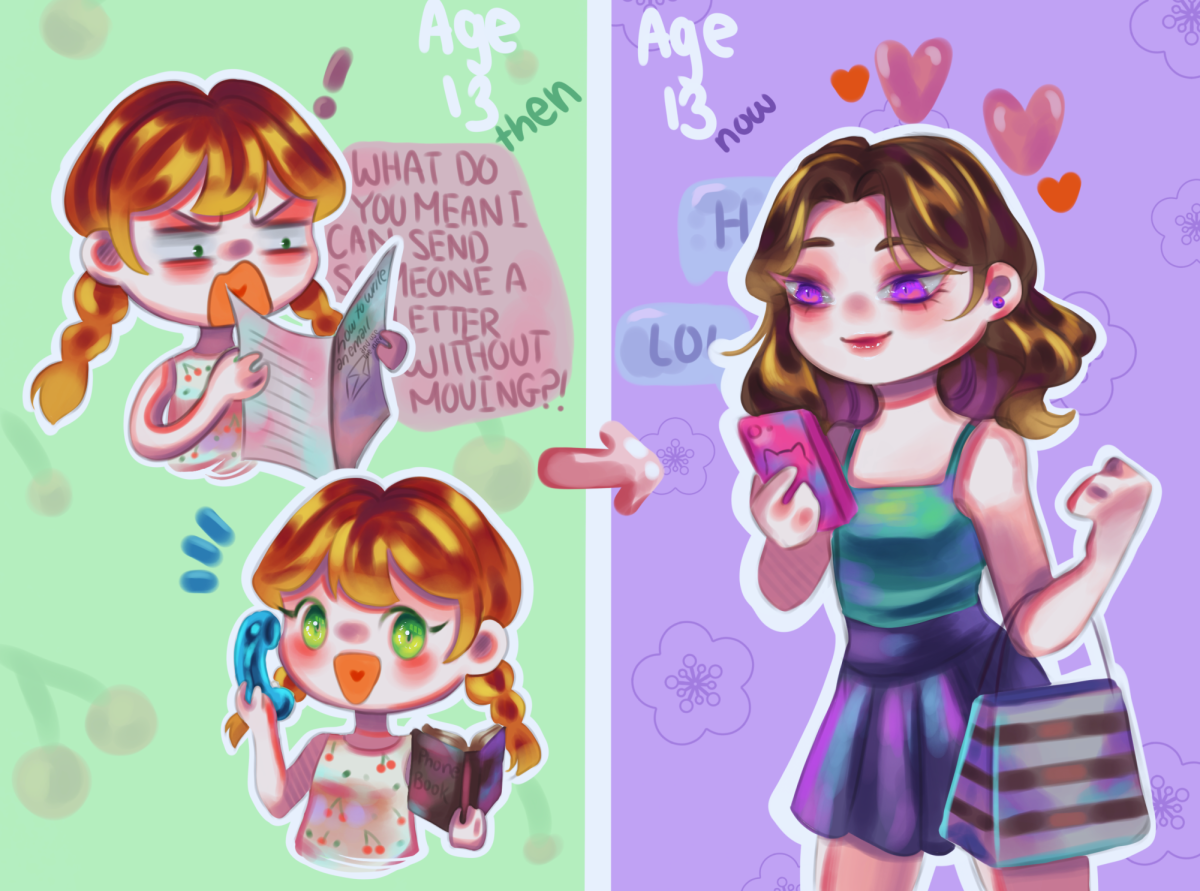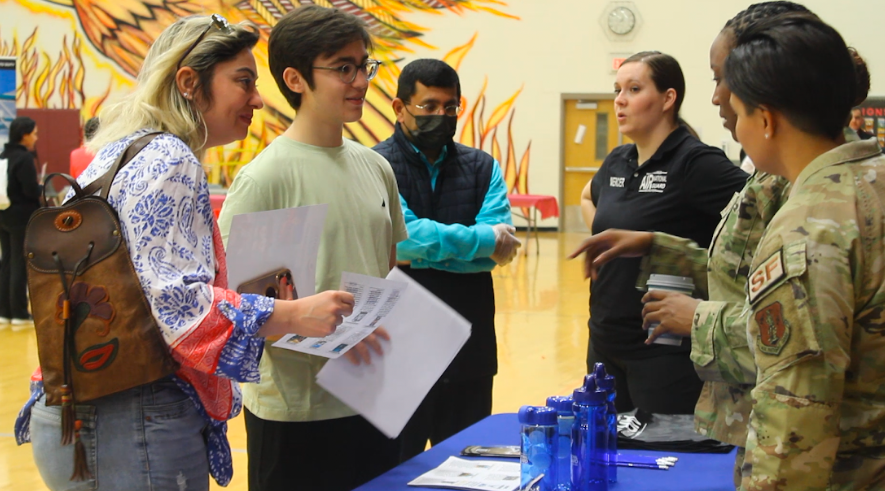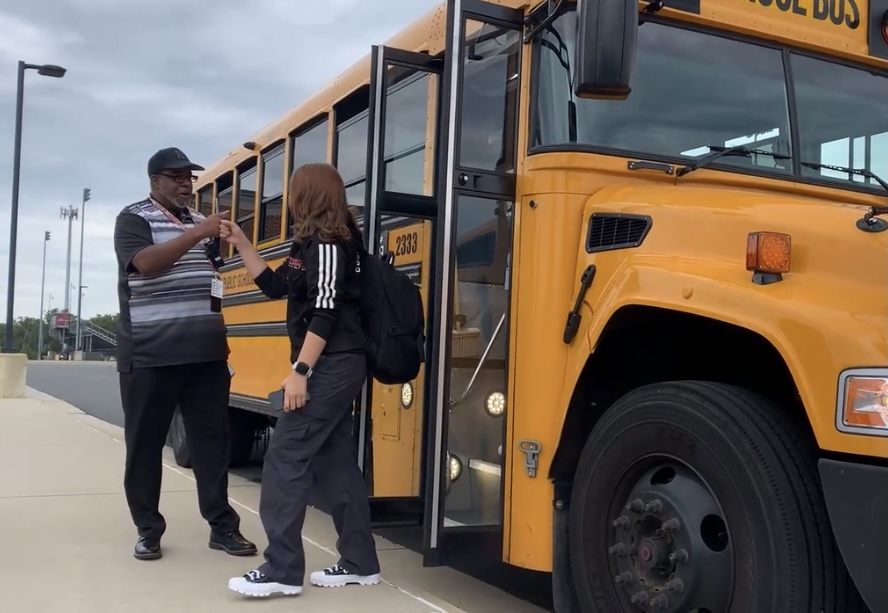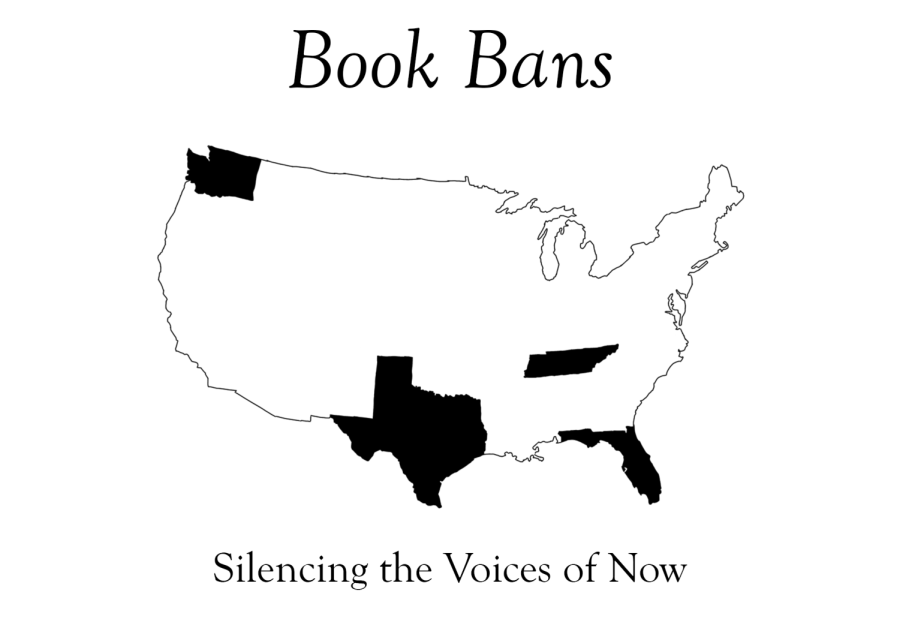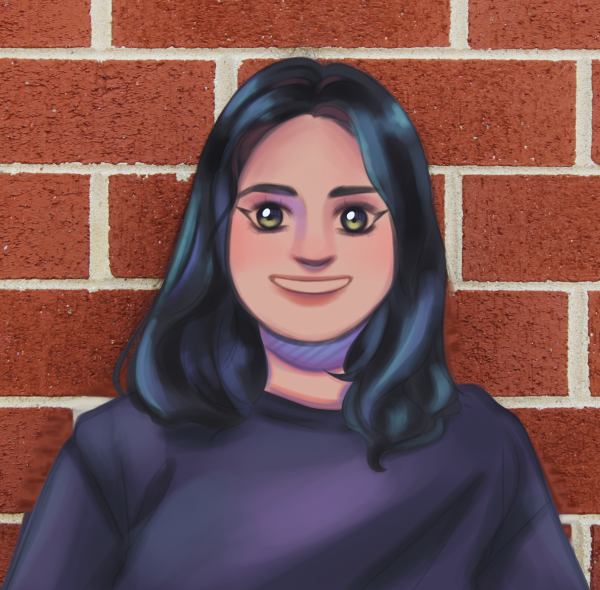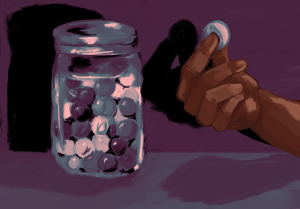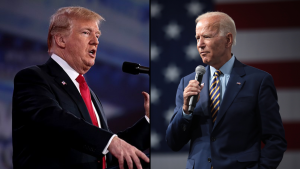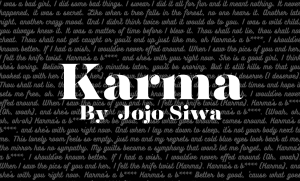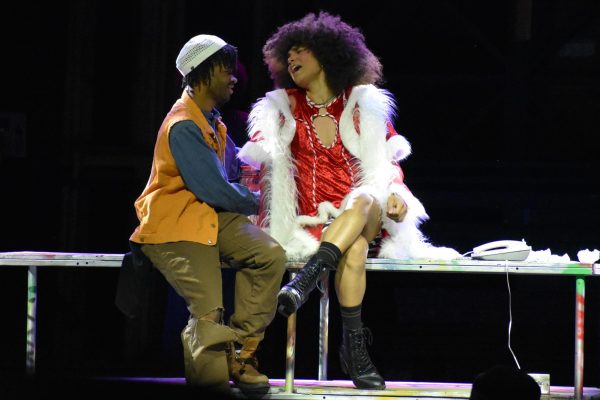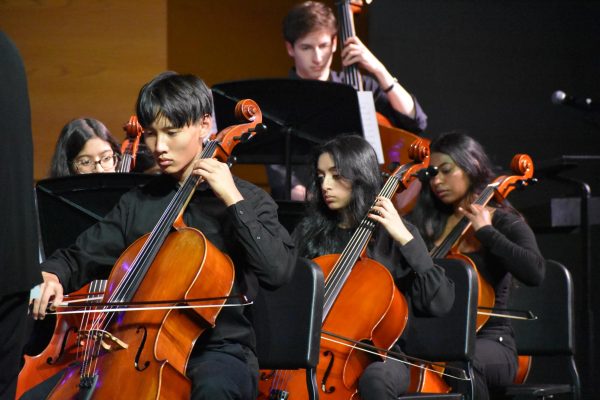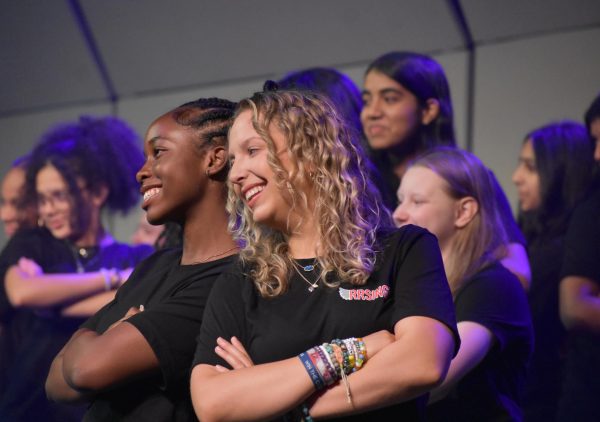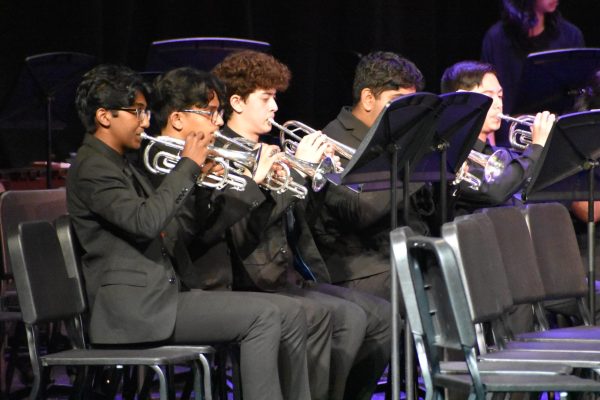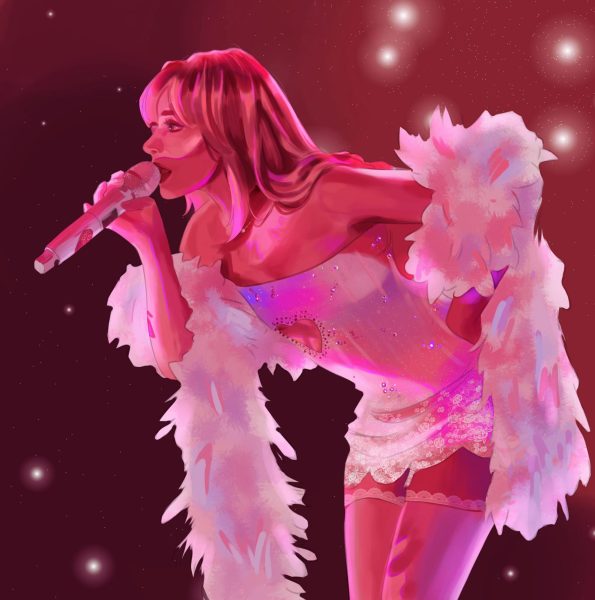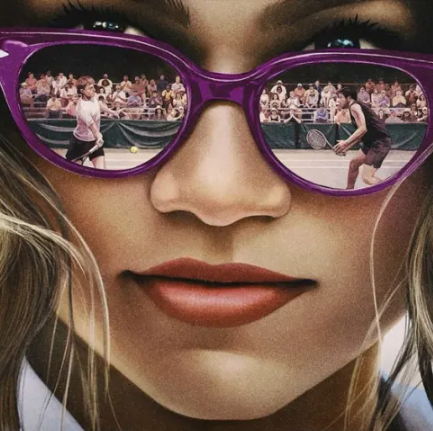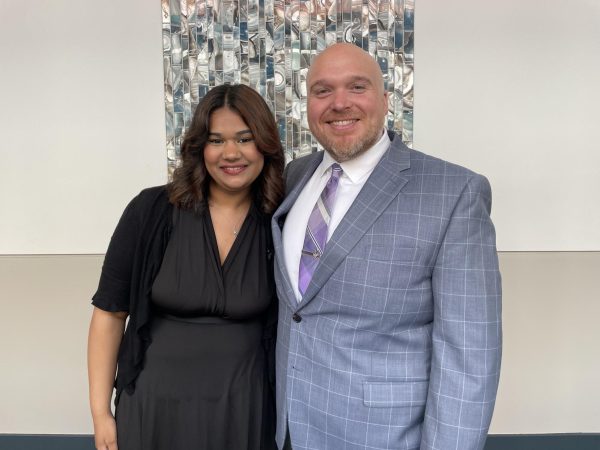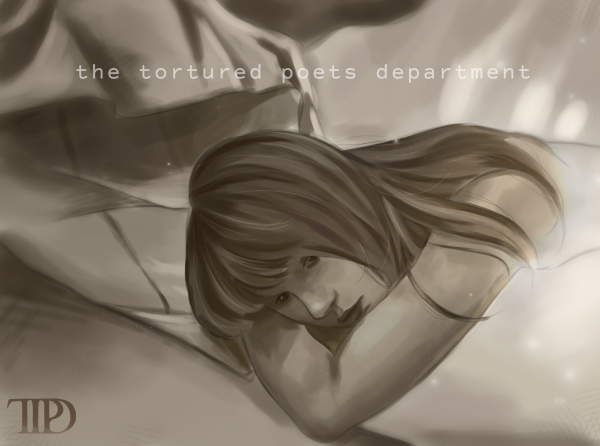I’m Worried, Darling
Olivia Wilde’s second directorial movie, “Don’t Worry Darling,” starring Florence Pugh and Harry Styles, delivers disturbing scenes and plot twists that are almost as attention-grabbing as the drama-behind-the-drama with the cast.
"Don’t Worry Darling" promotional image (Warner Bros)
While it seems like “Don’t Worry Darling” is going to be the perfect romance movie, it proves to be the complete opposite.
October 11, 2022
The 50s. A small utopian community in Victory, California. A perfect house in a perfect neighborhood with the perfect people. There’s nothing wrong. Right?
Jack and Alice Chambers are Victory’s favorite carefree couple. Every day Jack (Harry Styles) goes to work for the Victory Project, created by Frank, the community leader. While the men are at work, Alice and the other wives stay home to cook and clean. The trouble in paradise begins when one of the wives has a sudden outburst at a community party, causing Alice (Florence Pugh) to question what’s really going on. Alice begins to have hallucinations and notices some aspects of her reality don’t fit together, such as the hollow eggs she found while cooking. After multiple strange occurrences, Alice realizes she doesn’t actually know the purpose of the Victory Project, and why the husbands are intent on not sharing information about their positions.
This psychological thriller features conflicts spurred by misogyny: men are constantly gaslighting the women and controlling them into thinking that they’re “changing the world” — in Frank’s words, the women are only there to support the men and their homes.
The interactions between Alice and her friend Bunny, portrayed by actress and director Olivia Wilde, highlight the ups and downs of their friendship. During the second half of the film, Bunny goes from thinking Alice is crazy and that she shouldn’t be questioning what the men are doing to helping her and towards the end.
This character shift is just one example of how Wilde highlights the fact that you can’t believe everything you see, and that you shouldn’t trust anyone. The experimental community is almost too perfect for everyone — but Alice. When she begins to publicly question everything and everyone, including Jack, the community accuses her of being crazy and faking her hallucinations. These hallucinations are deeply disturbing, and cause Alice to have moments of dissociation from reality.
On the flip side, this film included many wholesome and adorable moments between Jack and Alice. Their clear love and support for each other added more depth to the plot of the film. By showing the sweeter moments of what the couple’s life was like in the beginning of the film, the stark contrast to the ending is all the more impactful.
The drama behind the drama, though, has also been a major contributor to the press about the film. When the cast was first announced in April 2020, Shia LaBeouf, who was originally cast for the role of Jack, was reportedly “fired” for scheduling conflicts. The story soon changed when Olivia said in an interview with Variety that, “his process was not conducive to the ethos that I demand in my productions.”
However, a video surfaced of Wilde begging LaBeouf to come back to her movie, contradicting her words to Variety. After the video surfaced, the public started accusing her of not caring about her cast members’ comfort on set, because it was apparent that Pugh was uncomfortable with the idea of working with LaBeouf. Despite Pugh’s discomfort, Wilde insisted that this would be a “wake-up call for Miss Flo.”
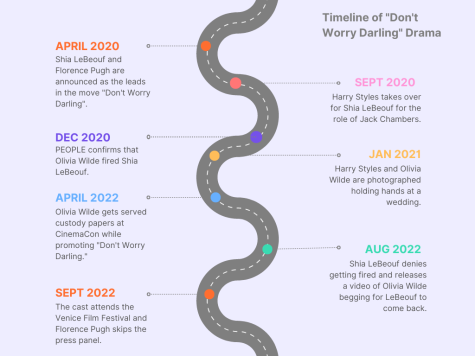
In the end, the drama did take away from the film itself because of how unprofessional it made everyone seem. The main aspect of the movie everyone focused on was the drama, not the actual film.
Drama aside, the entire cast attended the movie’s premiere at the Venice Film Festival on Sept. 5. Tensions between Pugh, Wilde, and Styles were evident after they ignored and avoided each other for the entire event, even using other cast members as dividers between them.
One week after the Venice Film Festival fiasco, we took the opportunity to watch the film during the advanced screening 12 days before its official release. The energy in the theater was electric, and added more enjoyment to the experience with many dramatic reactions to surprising scenes. Bursts of laughter and loud gasps in scarier parts of the movie helped to lighten the mood and create a sense of unity among the audience members.
Overall, the movie included surprising plot twists and subpar dialogs. Despite all the drama and gossip surrounding the actors, Pugh’s experience and talent clearly shines through, making her performance the highlight of the film.
“Don’t Worry Darling” is available in theaters starting Sept. 23.

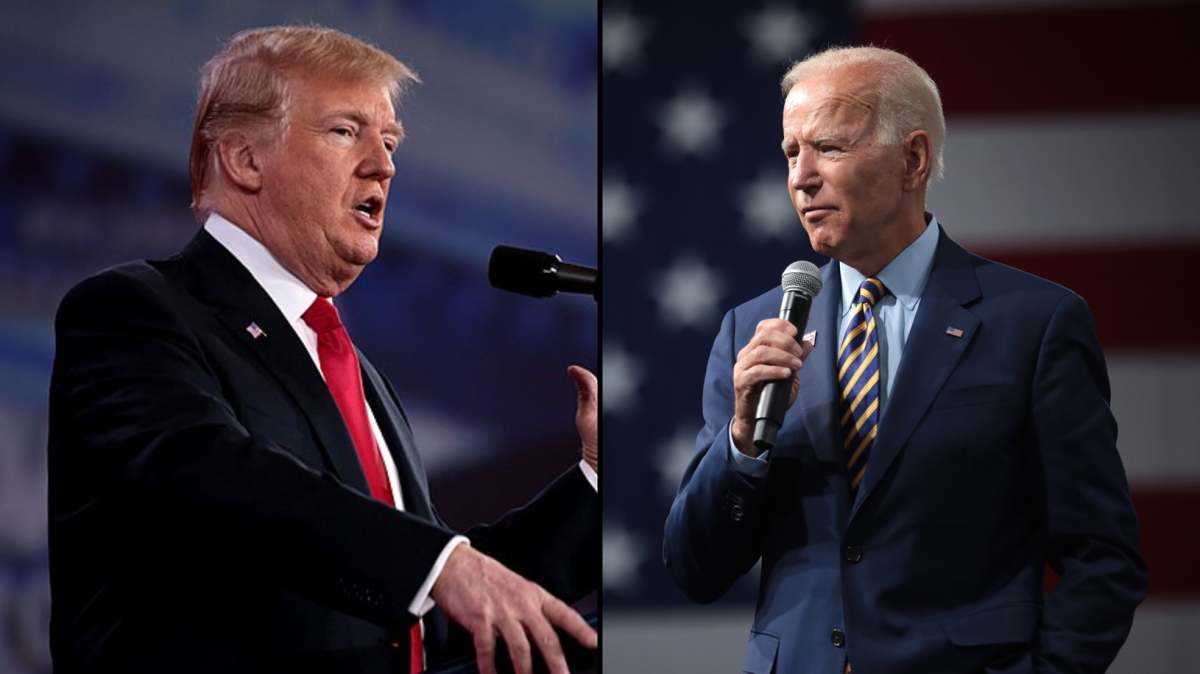
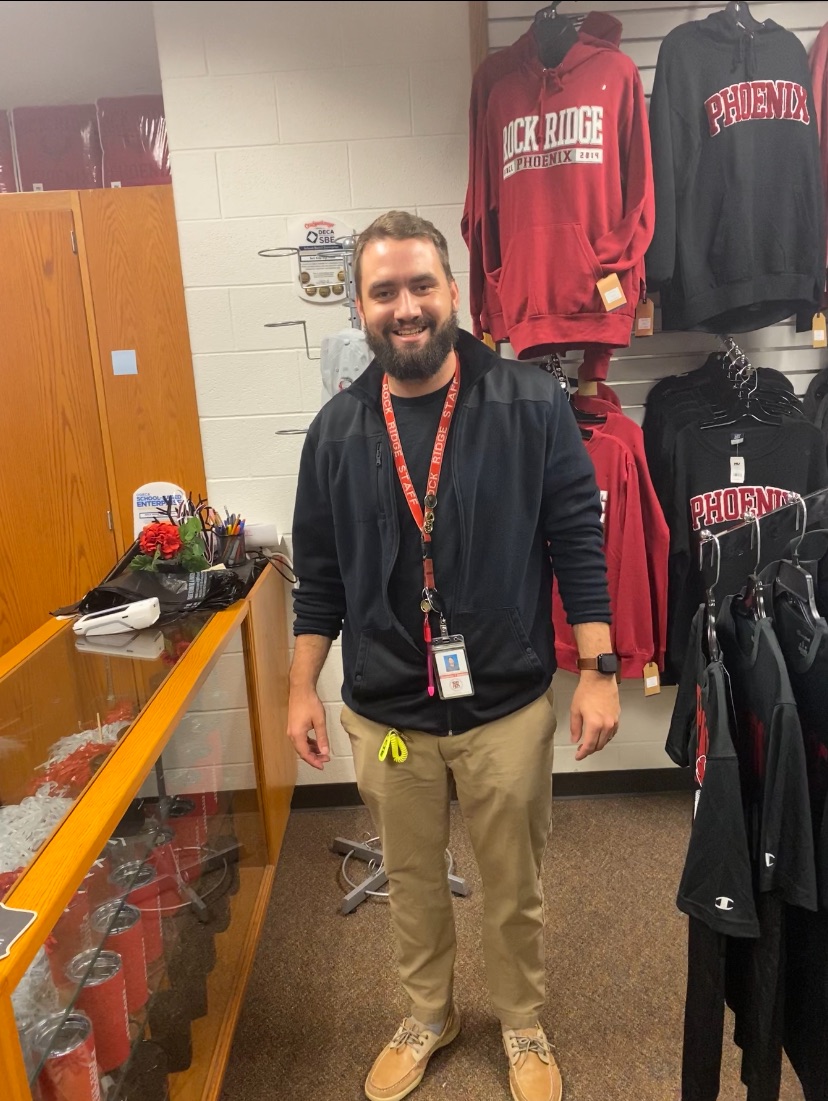
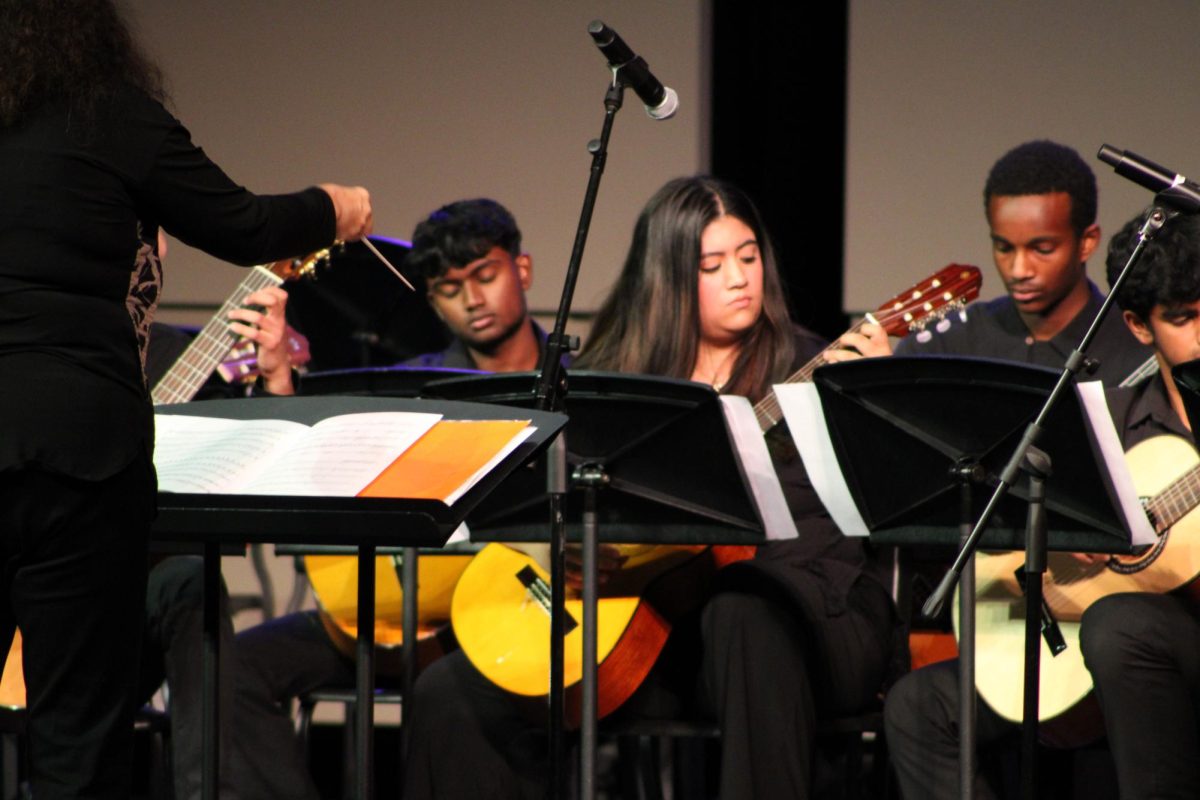
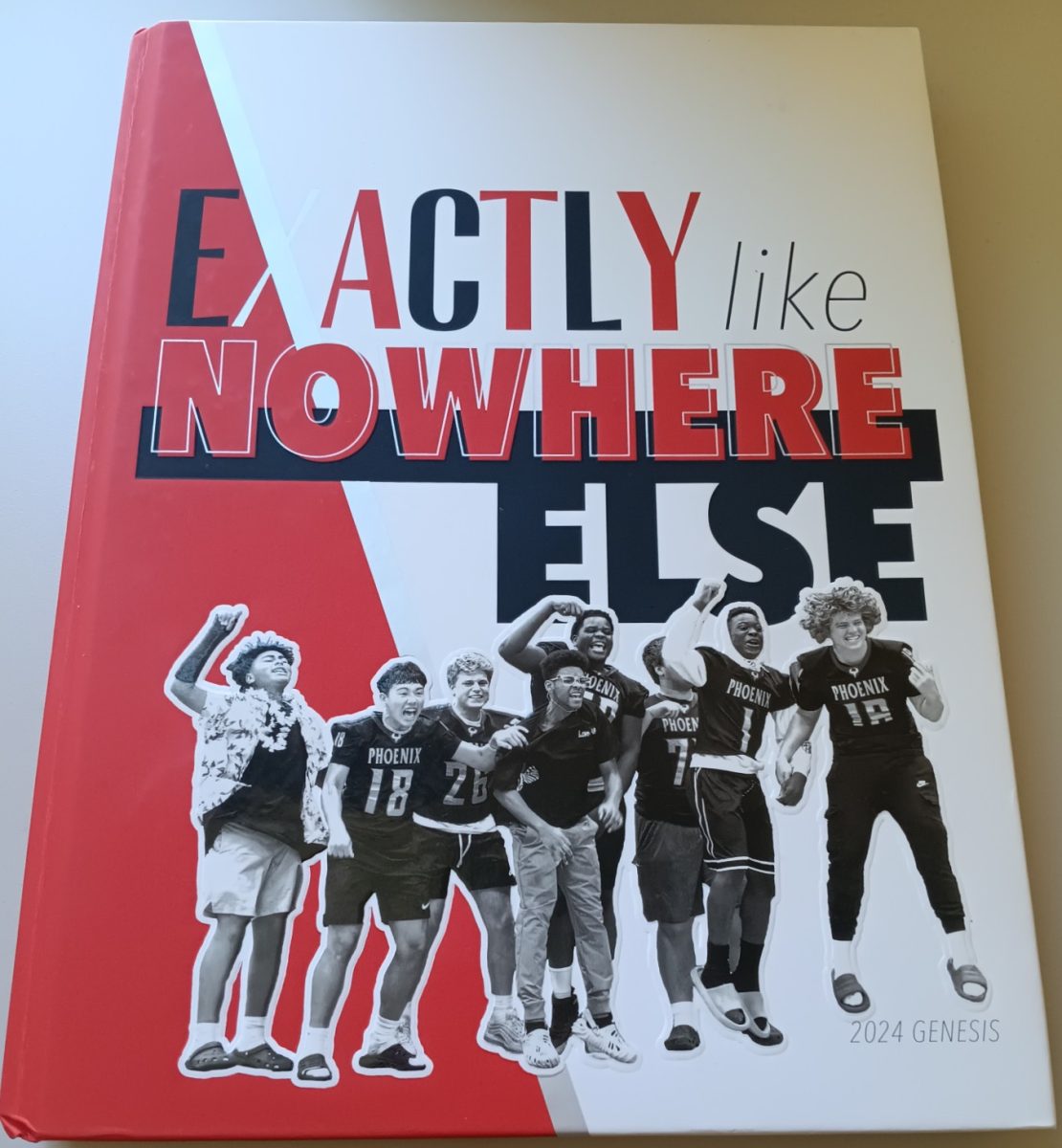
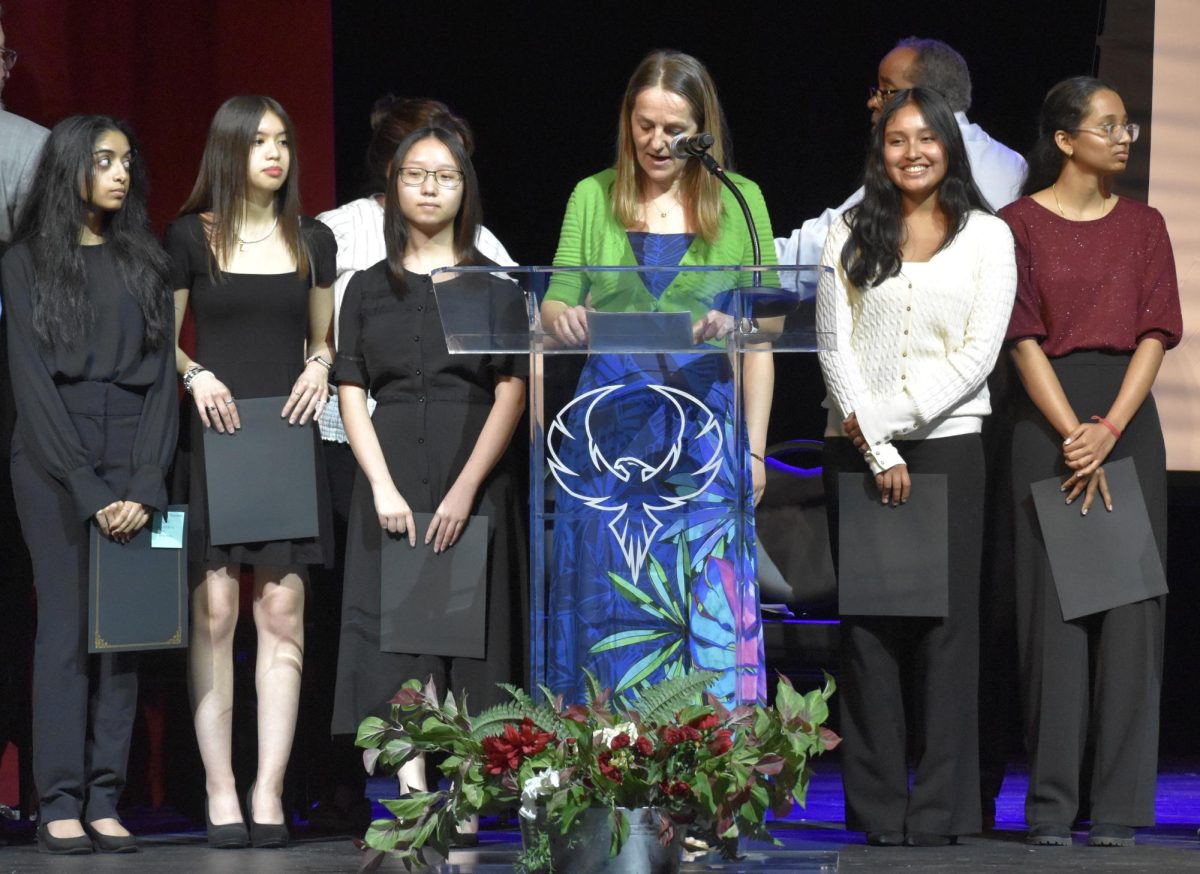
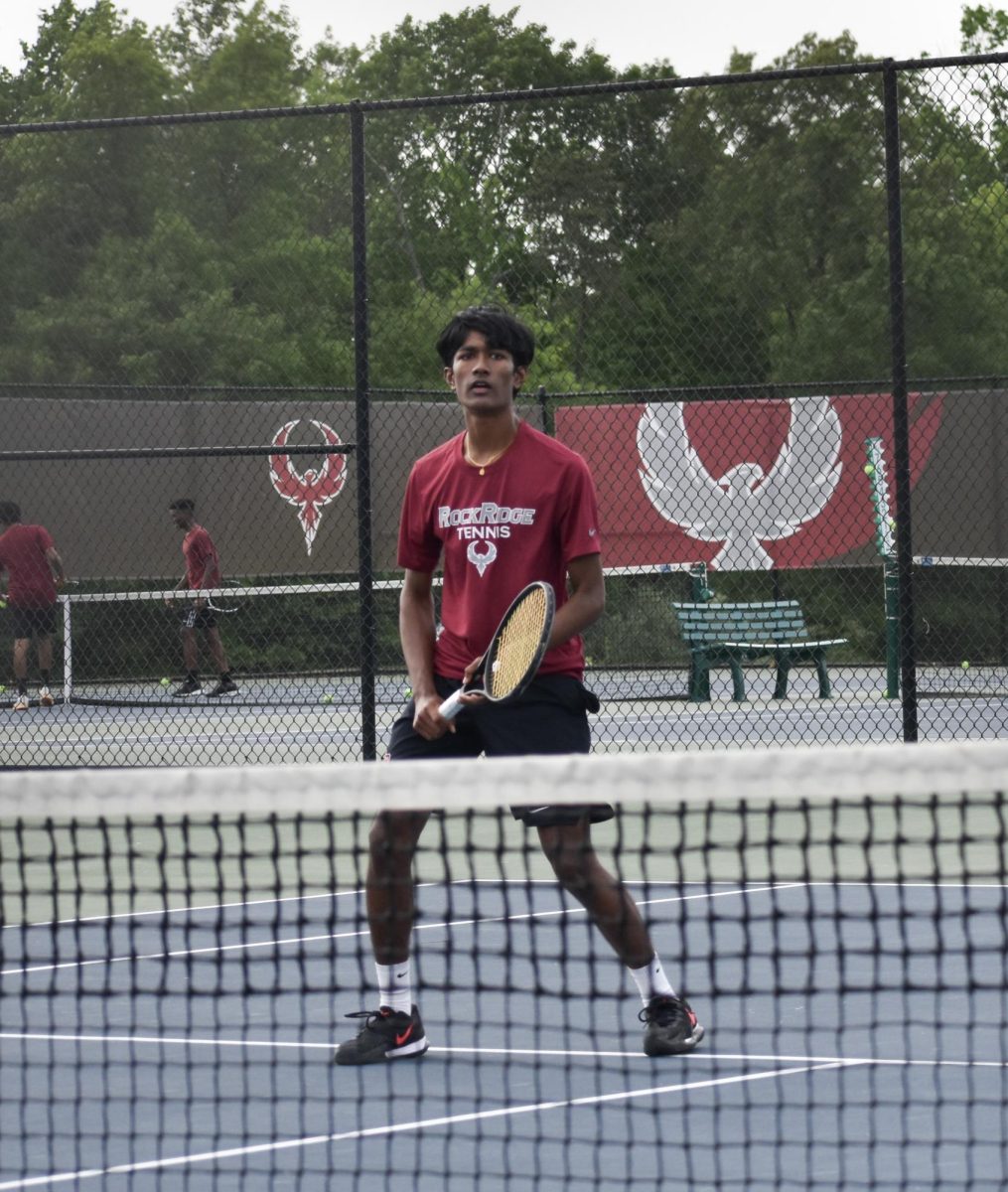

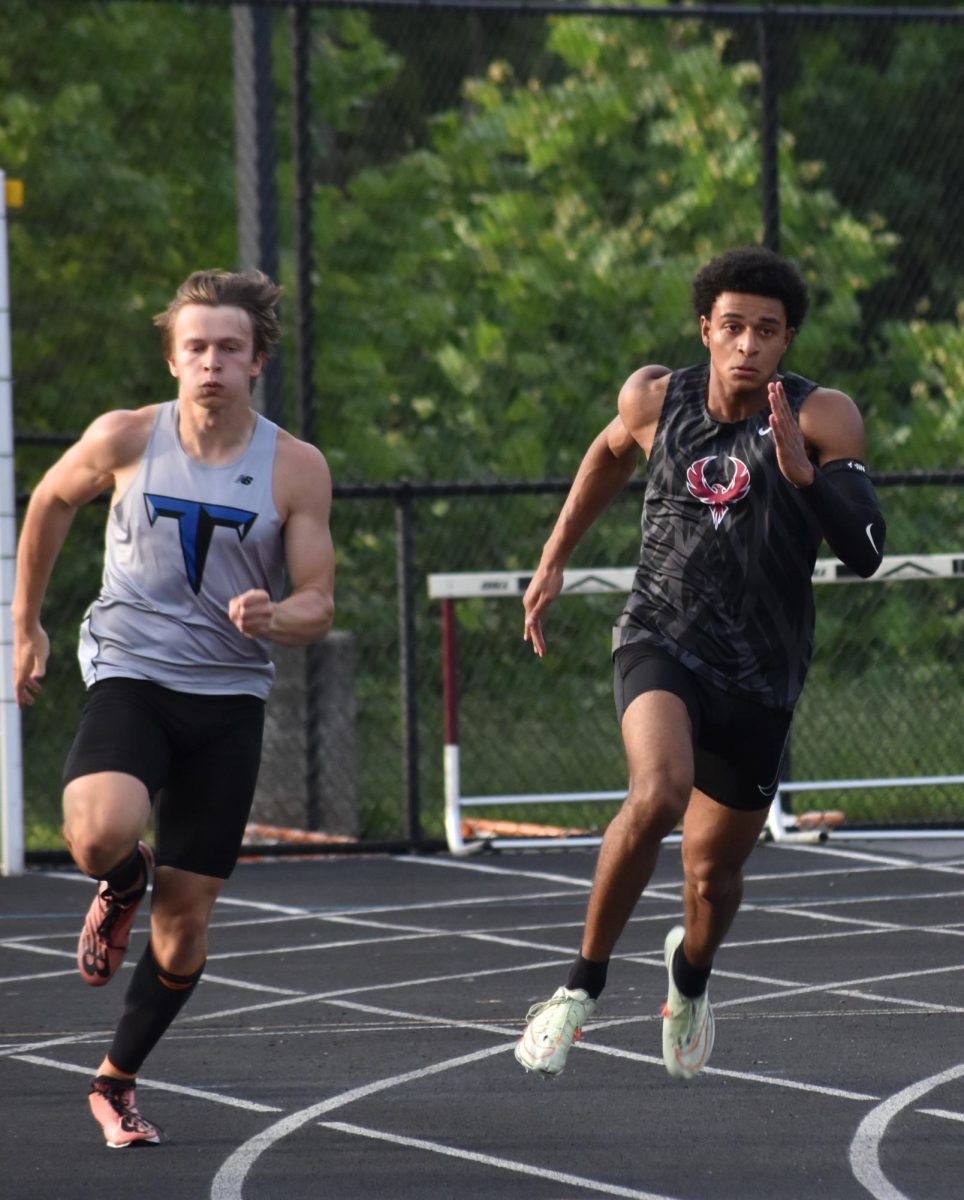

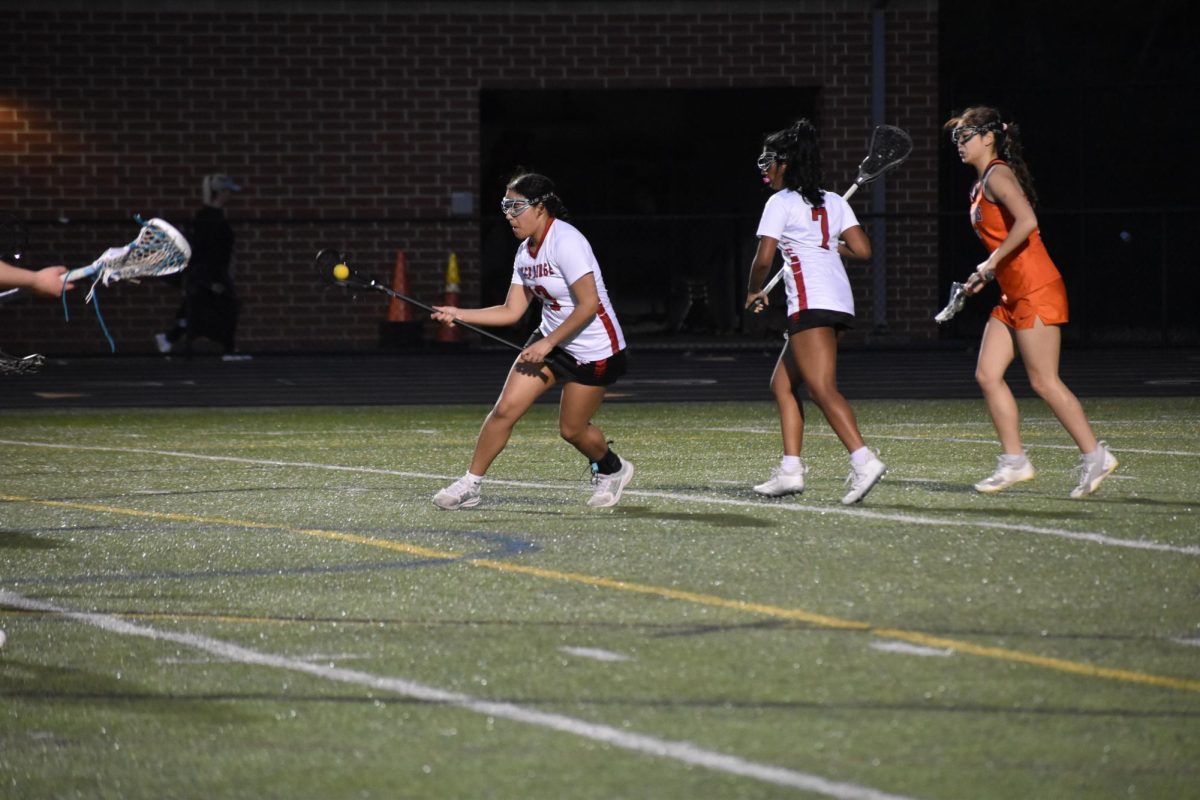

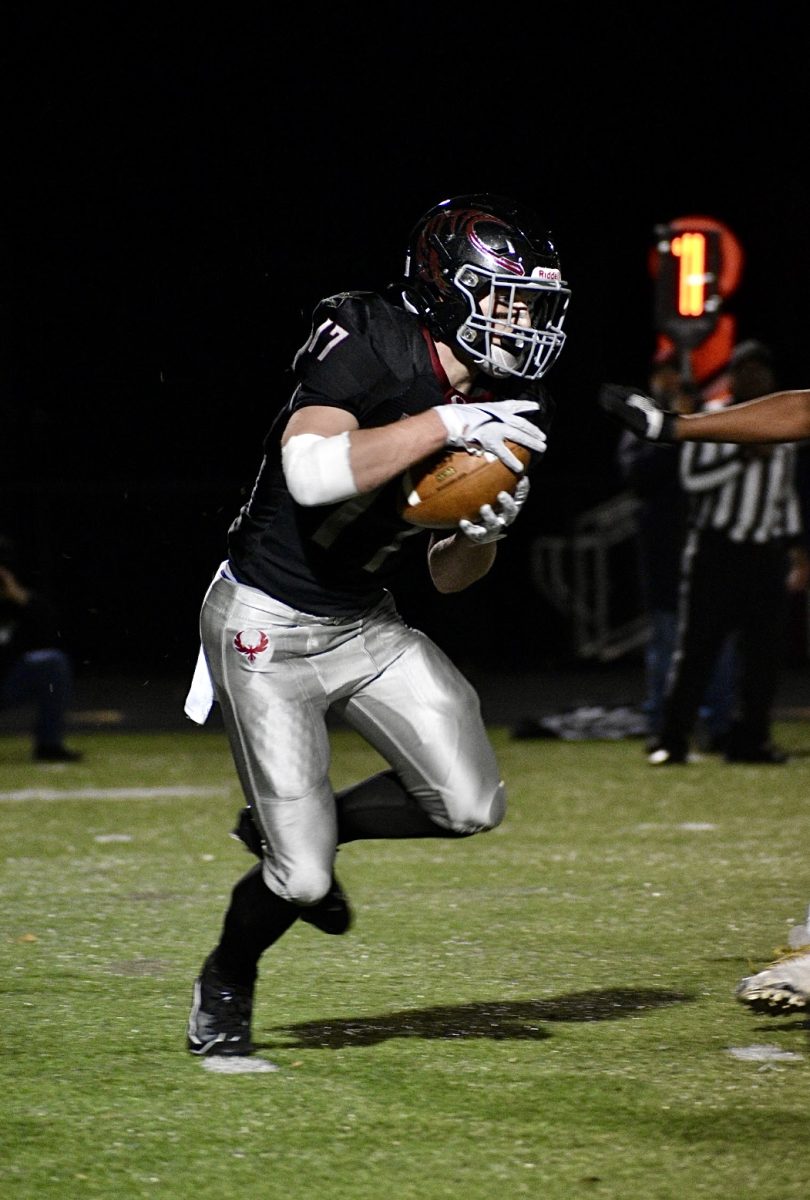
![Held up by a group of cheerleaders, flyer sophomore Leyu Yonas poses as part of a stunt, also supported by flyer junior Shayne Mitchell behind her. (Left) Prior to the pink out football game on Oct. 13, the athletes practiced in the aux gym from 5 p.m. to 6:30 p.m. (Right) On Oct. 19, the cheerleaders competed in their District Championships at Woodgrove High School. “We definitely put all our effort on the mat [at Districts], and it showed,” Mitchell said. Left: Photo by Nadia Shirr. Right: Photo by Steve Prakope via Victor O’Neill Studios.](https://theblazerrhs.com/wp-content/uploads/2023/11/feature-image-1200x823.png)
![Sophomore Xavier Smith (6), the Phoenix quarterback, runs the ball as his teammates help hold up the defense. “My [offensive] line collapses, so I just [have to run], and its a good way to get first downs because [Tuscarora’s] defense was really good,” Smith said.](https://theblazerrhs.com/wp-content/uploads/2023/11/IMG_5383-1200x897.jpg)
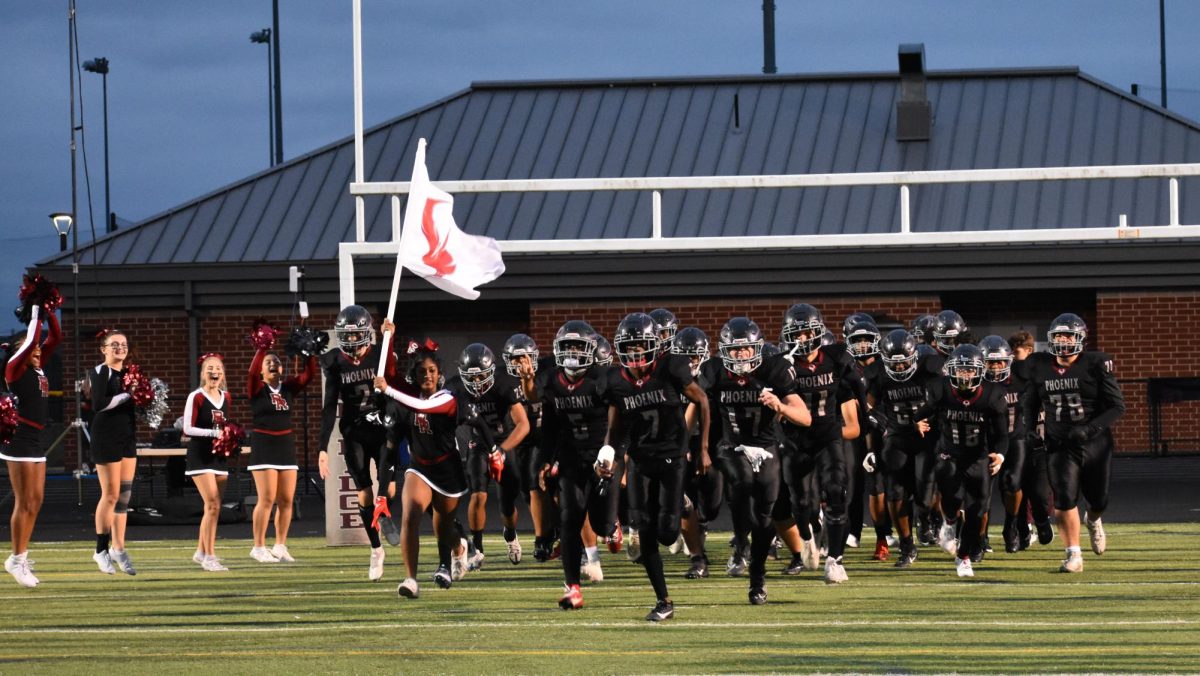

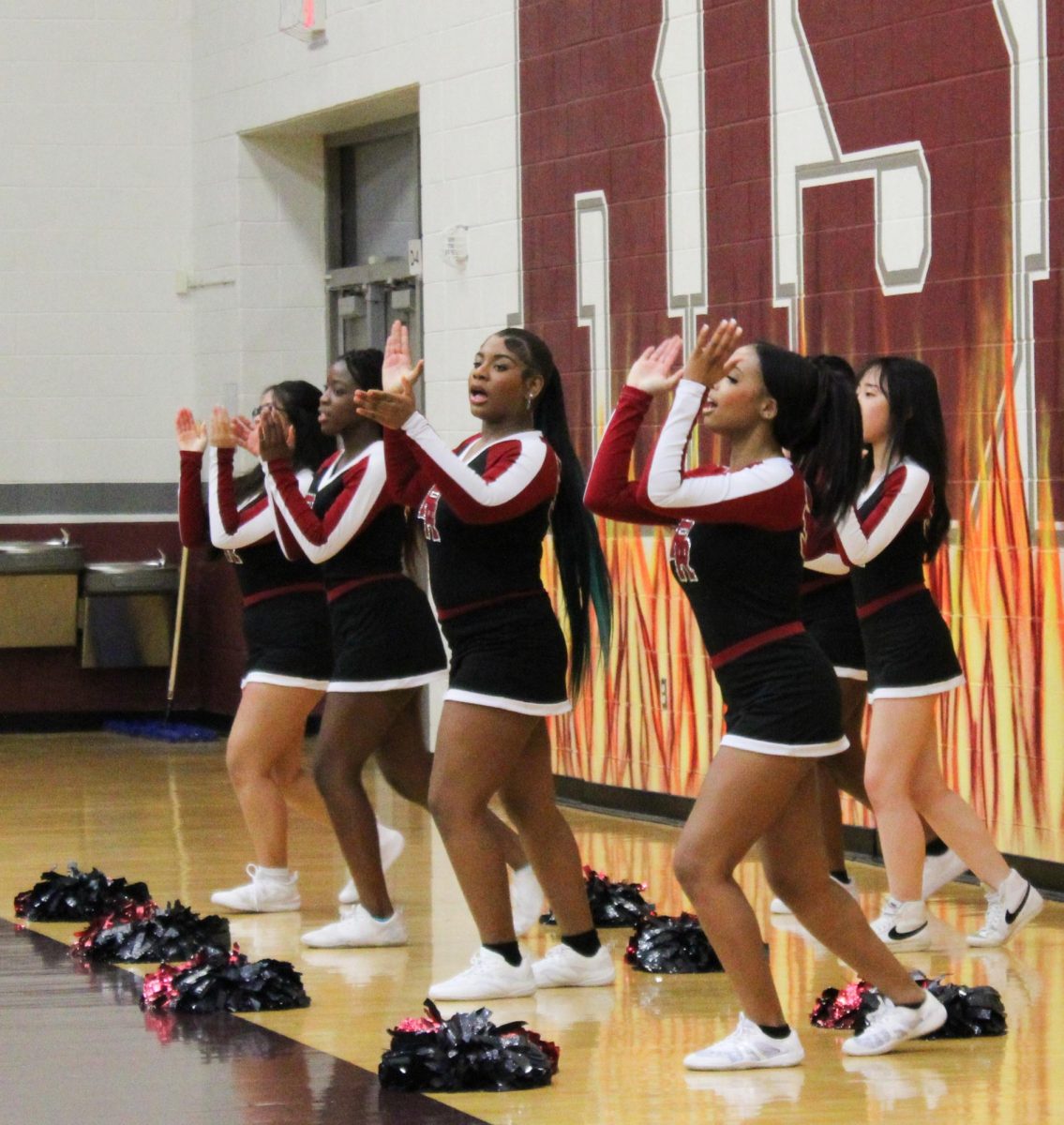
![As the referee throws the ball up for the tip-off, freshman Simone Diby leaps towards the ball to get it in Phoenix possession. Diby is a new member of the Phoenix girls basketball team, and despite it being a change, she finds it enjoyable. “It’s definitely a different experience if you’ve never played on a team, [but] I think it’s still fun.”](https://theblazerrhs.com/wp-content/uploads/2024/03/DSC_0057-1200x662.jpg)
